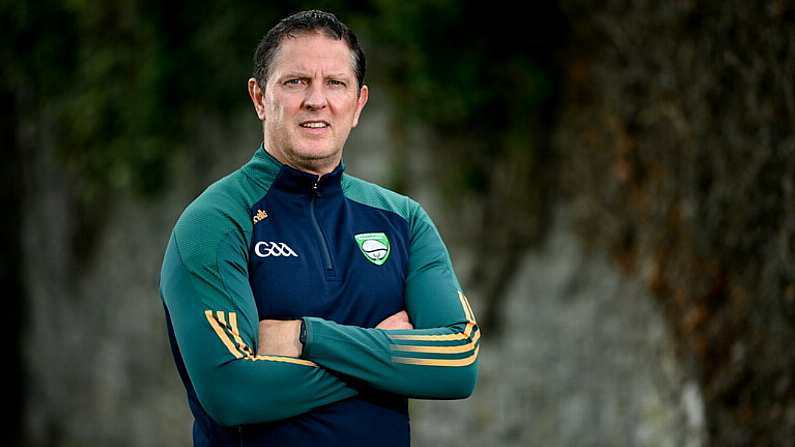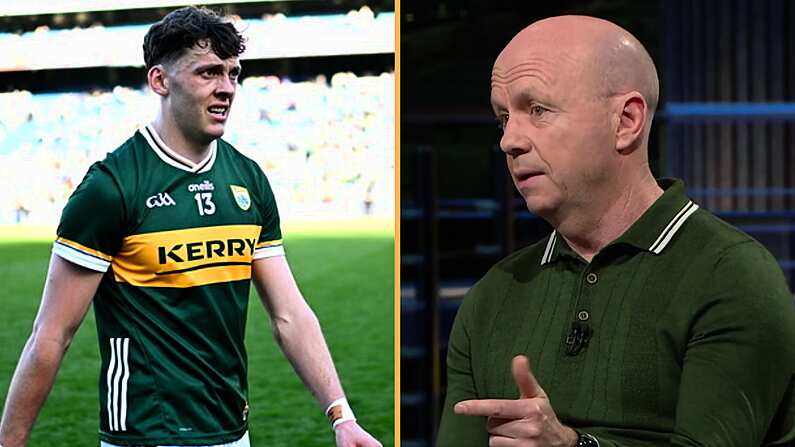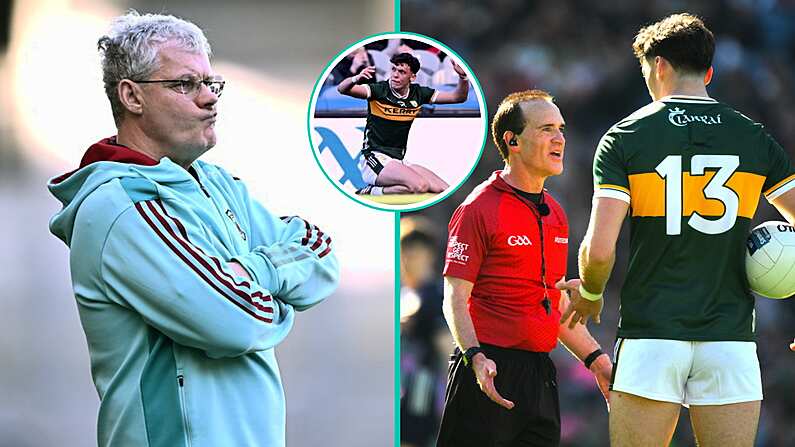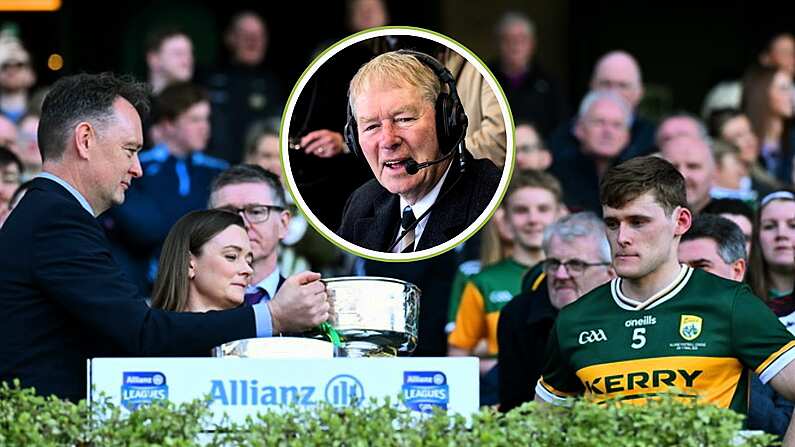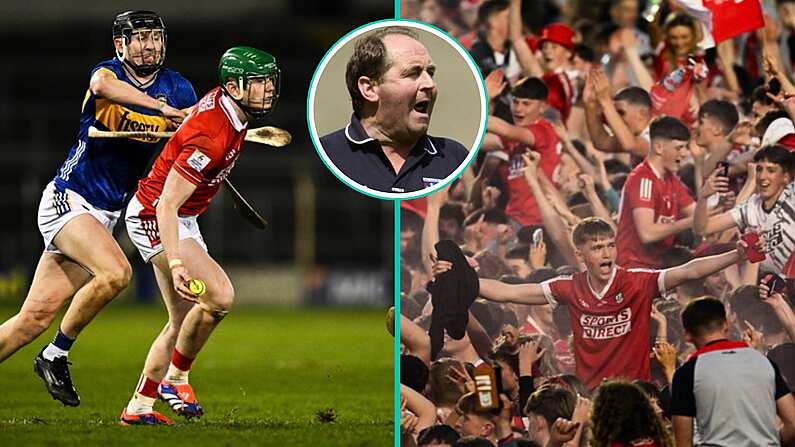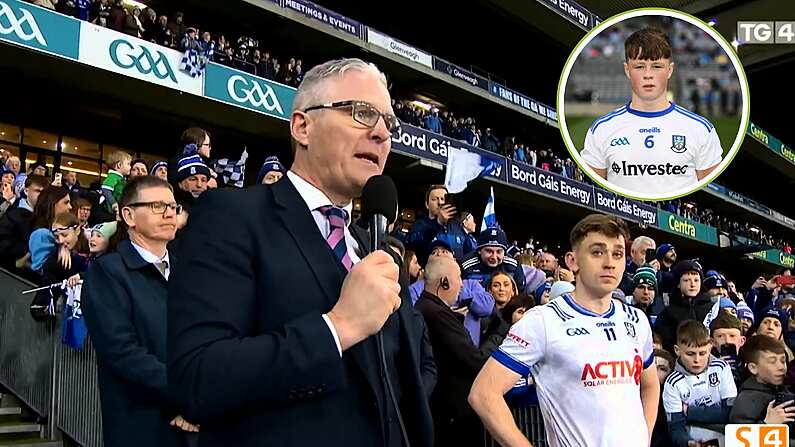An aspect of this Saturday's Hurling Shinty international against Scotland which pleases Ireland manager Damien Coleman is that his squad features players from 14 counties.
Coleman and his selectors Sambo McNaughton, Kieran Kingston and Michael Kavanagh were restricted to picking seven players from Liam MacCarthy Cup teams in their 20-man squad. It meant they had the spread the net far and wide across the teams populating the Joe McDonagh, Christy Ring, Nick Rackard and Lory Meagher Cup competitions.
"The line across the country from Galway to Dublin and all the hurling wilderness north of that line that Martin Fogarty was preaching about for years, we have to have a serious look at it as an Association," said Coleman.
"I think we are. We have done a lot, but we need to do a lot more to help and support hurling in the north of the country and even in my own province in Connacht with Mayo, Roscommon, Sligo, and Leitrim.
"There's such passion for the game there but the numbers are small. The number one sport is football but I think we can both live in the same marriage and live in the same space, hurling and football, if you have good people there who will think outside the box.
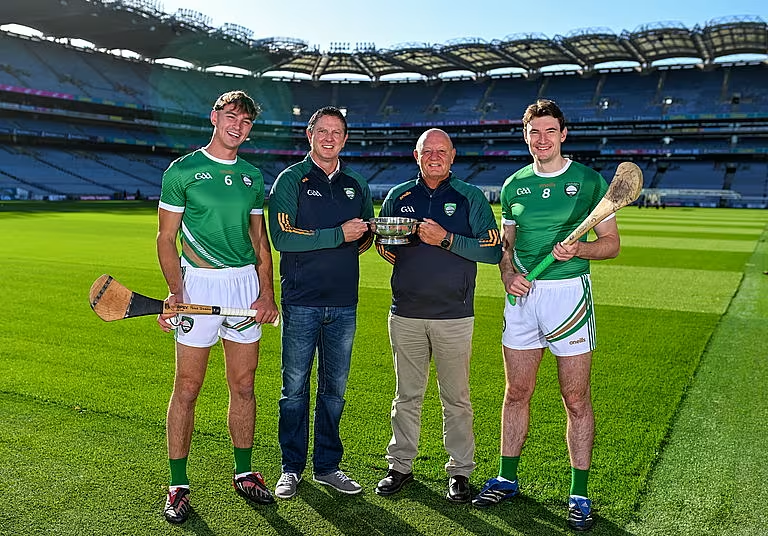
12 October 2023; Ireland players Peter Duggan, left, and David Fitzgerald with team manager Damien Coleman, second from left, and selector Terence McNaughton in attendance at the Hurling Shinty International 2023 launch at Croke Park in Dublin. Photo by Piaras Ó Mídheach/Sportsfile
"If a boy in a developing hurling county wants to play hurling then he should be afforded the opportunity through a fixtures programme to do so. And it shouldn't impact on his football venture either. It's very important we develop the game and I'm delighted that 13 of the 20 players on this Irish team are coming from the developing counties.
"Joe McDonagh was a good friend of mine over the years and I'm very passionate about the Joe McDonagh Championship, the Ring, Rackard, and Meagher Championships.
READ MORE: 'We Look On With Envious Eyes At What The GAA Have Created'
See Also: 'That Happening 62 Seconds Into The Camogie Final Was Heartbreaking'
"I'd like to say a word too about all the players that came to trials. We had to pick 13 out of maybe 200 players from McDonagh, Ring, Rackard, and Meagher counties who were in the equation. We feel we have a very strong 20-man squad now and it's great too that 14 counties are represented."
One of the main restrictions for hurling players in this weekend's hybrid game is that are not allowed catch the ball. It means ground hurling, and antiquated skill in the modern game, will be required.
"From Day one we abided by the hybrid rules," said Galway native Coleman.
"The big one is that you can't handle it. So it's lift and strike, soloing, and ground hurling. So it's all the skills that hurling should have in the modern era but that the modern coach doesn't allow.
"I think you'd be taken off now in the modern game if you don't stick rigidly to those tactics and game-plan. I think hurling is an instinct game and it has to be automatic in the brain.
"I think we're stereotyping players too much. We're putting them into formations and structure that's maybe not natural to them. I think the best coaches in our game presently are the ones who afford the players individual autonomy.

2 November 2019; Willie Dunphy of Ireland in action against Daniel Grieve of Scotland during the Senior Hurling Shinty International 2019 match between Ireland and Scotland at the GAA National Games Development Centre in Abbotstown, Dublin. Photo by Piaras Ó Mídheach/Sportsfile
"Because the modern coach wants everything played through the hands, played through the lines, retaining possession. I'm maybe more of a traditionalist in the way I think as a coach. I'd love to see the game evolve again and to see teams play like the Offaly team of the 90s did with great ground hurling and doubling on the ball in the air.
"John Fenton's goal for Cork against Limerick when it hit it off the ground from 80 yards was just pure instinct. Ball lands, bang, ball in the back of the net.
"Now coaches don't want you doubling on the ball at all and I'm just not sure about the way the game is being coached now. The game is always evolving and I think some coach will arrive in and change it again. I think a player shouldn't be penalised for a great ground stroke, left or right, or doubling on the ball in the air, that's a great skill. But we don't have it because it's not coached.
"Soloing and striking off the hurley is a little bit more prevalent in our game, and these are all brilliant skills and I think this hybrid game of hurling-shinty encourages players to go back to basics.
"In some of the coaching sessions we were doing we had household names in hurling coming to us after the session saying, 'that ground hurling drill was brilliant'. You'd be asking one or two of them when they did it last and they thought maybe at U-12 level.
"They haven't had any exposure to that skill in maybe 15 years of their hurling lives, they did it when they were juveniles. I think there's a need for the inclusivity of all skills in the game of hurling going forward and the shinty offers you that."

